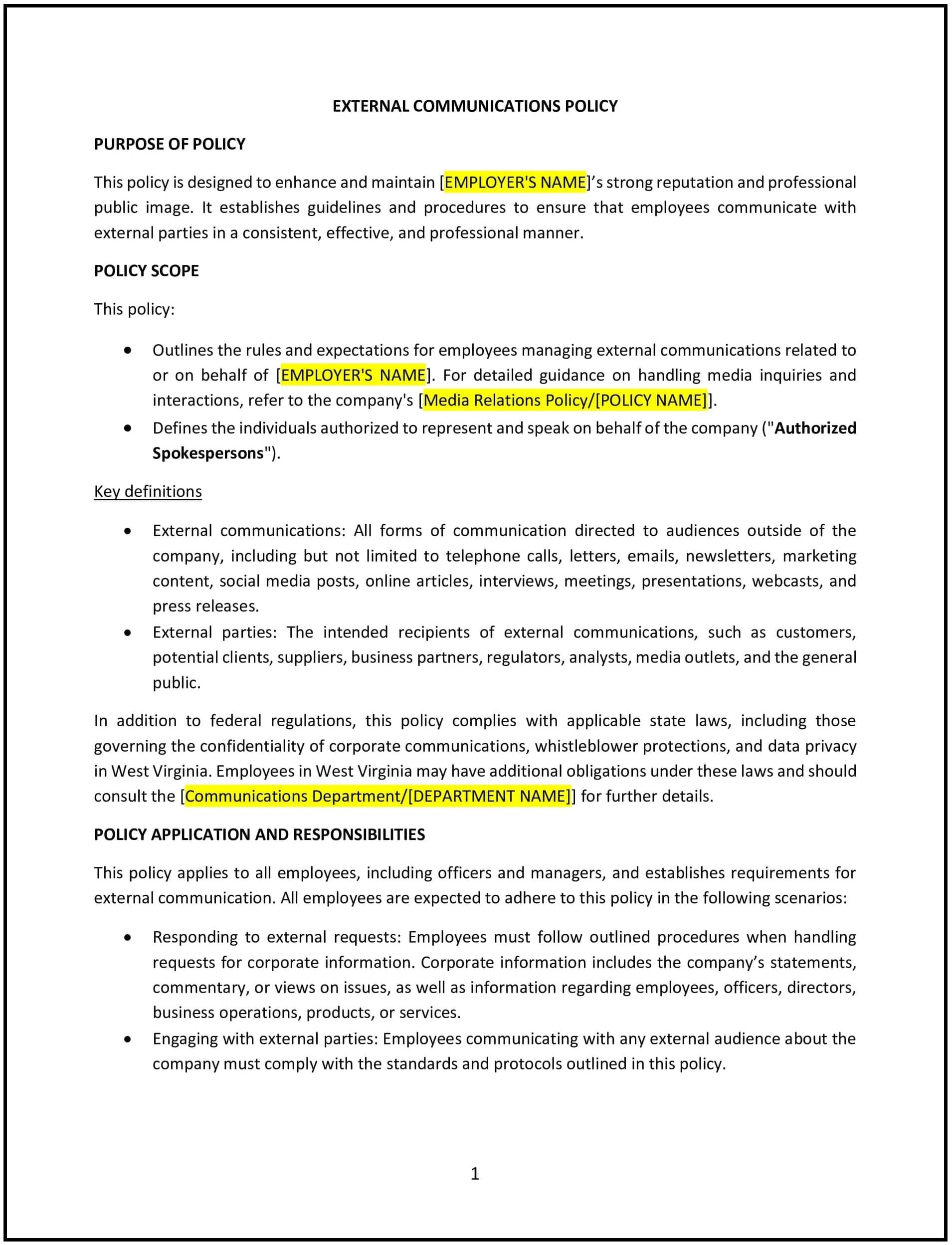External communications policy (West Virginia): Free template
Got contracts to review? While you're here for policies, let Cobrief make contract review effortless—start your free review now.

Customize this template for free
External communications policy (West Virginia)
In West Virginia, an external communications policy establishes guidelines for how employees and representatives of the organization interact with external audiences, including clients, media, and the public. This policy ensures that all external communication aligns with the organization’s values, messaging, and compliance with applicable laws.
The policy defines communication roles, outlines approval processes, and provides protocols for managing media inquiries and public statements.
How to use this external communications policy (West Virginia)
- Define authorized representatives: Clearly identify employees or roles responsible for speaking on behalf of the organization, such as designated media spokespeople or senior executives.
- Establish approval processes: Provide procedures for reviewing and approving external communications, such as press releases, marketing materials, or public statements.
- Address media inquiries: Outline steps employees should take when approached by the media, including redirecting inquiries to the designated spokesperson.
- Set social media guidelines: Include rules for employees’ use of social media, both on behalf of the company and in a personal capacity when referencing the organization.
- Support compliance: Ensure the policy aligns with West Virginia and federal regulations regarding advertising, confidentiality, and public disclosures.
Benefits of using an external communications policy (West Virginia)
- Protects brand reputation: Ensures all external communication reflects the organization’s values, messaging, and professionalism.
- Reduces risks: Minimizes legal, reputational, and operational risks associated with unauthorized or inaccurate statements.
- Promotes consistency: Provides a unified approach to communicating with external audiences, maintaining brand coherence.
- Enhances transparency: Establishes clear roles and responsibilities for external communication, fostering trust and accountability.
- Supports compliance: Aligns with West Virginia laws and federal regulations, such as those related to advertising, confidentiality, and public disclosures.
Tips for using an external communications policy (West Virginia)
- Communicate the policy: Share the policy with employees during onboarding and ensure it is easily accessible for reference.
- Train employees: Provide training on the organization’s communication standards, media handling, and social media guidelines.
- Monitor public statements: Regularly review public-facing materials and statements to ensure they comply with the policy.
- Encourage feedback: Allow employees to provide input on the policy to ensure practicality and alignment with organizational needs.
- Update regularly: Revise the policy to reflect changes in West Virginia laws, company practices, or external communication strategies.